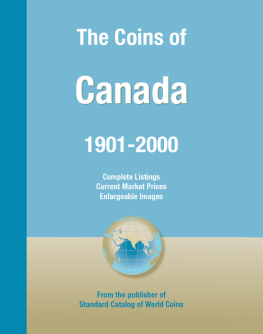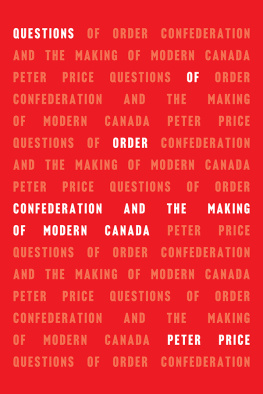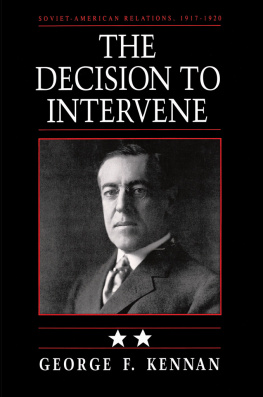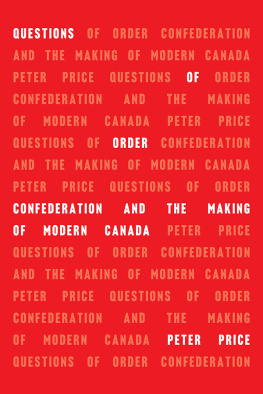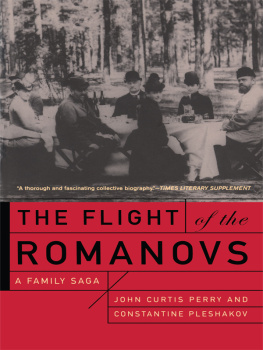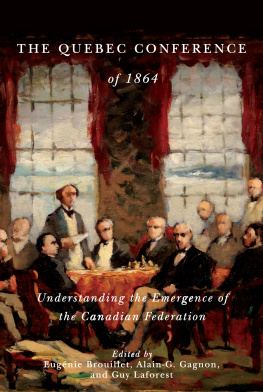I
THE CREATION OF THE FEDERAL SYSTEM IN CANADA
Table of Contents
By GEORGE M. WRONG
Speaking in Toronto to celebrate the fiftieth year of Confederation I am reminded of two past scenes in this city. One was in 1849 when a riotous mob marched through the streets. The occasion was trouble between the French and the English in the Parliament then in session at Montreal. The Toronto mob was bitterly angry because Parliament had decided to compensate certain French Canadians for losses inflicted upon them during the rebellions in 1837 and 1838. This, the mob considered, was to reward rebellion. Accordingly the rude effigies of two ministers, Robert Baldwin and William Hume Blake, after being carried about in derision, were finally burned amidst jeers and shouts and after the mob had proclaimed its favourite doctrine of "To Hell with the French." Eighteen years later there was a different scene. At daybreak of the morning of July 1st, 1867, a crowd collected at the foot of Church Street to witness the roasting whole of a great ox in celebration of the federation of Canada, which went into effect on that day. The practice of roasting oxen whole was little known in Canada and the operation lasted through the greater part of the day. When it was complete no hungry crowd was waiting for food and so the ox was cut up and distributed among the charitable institutions of the city. Fireworks followed in the evening and that night Toronto went to bed tired and happy. This day, said the Globe newspaper, sees the beginning of a new nation. The history of Canada as a federal state had begun.
The two scenes illustrate two cardinal features in the political history of Canada. The one is the differences between the English and the French, the other is the succession of attempts at a working arrangement, ending at last in the compromise of federation. Most of what has happened in the constitutional development of Canada is linked with these questions. It loomed up on the day when the British flag was first raised over Canada. It is still with us and threatens anew from time to time to become alarming and menacing.
Conquered New France was a country aristocratic in organisation with a class of great landowners who delighted to call themselves a noblesse. The eighteenth century laid sharp emphasis upon differences of birth and rank. The British military class despised traders and when a British officer ruled at Quebec there was certain to be sharp cleavage between him and the traders, unless these were properly docile and respectful. "The genteel people of the Colony", wrote General James Murray, the first British governor, "despise merchants and of course esteem the officers who shun them most." In nothing did the English of the last half of the eighteenth century glory more than in being genteel, and when at Quebec they looked about them in search of this beautiful quality they found it not among their own British traders but among the French seigneurs. A seigneur they could invite to their table, when they would scorn to meet a merchant, and the result was intercourse on terms of equality between the English and the French leaders. Both classes despised the pushing trader and the trader was not slow to strike back. The British officer of that age was perhaps not a model in conduct. The traders watched Murray's little court at Quebec with relentless suspicion. They made bitter complaints against his desecration of the Sabbath by balls, gaming, and other "Idle Divertions", and his neglect to go regularly to church. He retorted with "rage and rudeness of language", as the traders complained, and more and more courted the society of the French leaders. However different had been the fortunes of war on the battlefield, in the society of Quebec, after the conquest, the English trader was depressed and despised and the conquered French were in the ascendant.
The British found Canada, with its harsh climate, an unattractive country. Sir Guy Carleton, who succeeded Murray, made a careful survey of the outlook and he came to the conclusion that Canada would never be the home of any considerable number of English-speaking people. Why should the English settle in this northern region when they had open to them under their own flag the warm and pleasant lands, which stretched southward to Floridabut were destined soon to become the United States of America? Canada will always be French, said Carleton, and, this being the case, why should not the French in Canada have anything which would help to make them contented and comfortable? They had sworn allegiance to the British crown. They had no desire to come back under the power of France, who had been a hard and exacting mother, and, if not disturbed in their usual mode of life, they would remain docile and useful dependents of the British crown. Accordingly Carleton favoured the widest liberality in governing the French, and the system embodied in the Quebec Act of 1774 goes far in concessions. The French retained their own laws in respect to property and all other aspects of civil life; their church received every privilege which it had had under a Catholic king and to this day has the legal right to collect the tithe and to levy upon Catholics taxes for the erection of church buildings. Carleton saw his ideal realiseda French-speaking society under French civil law, with the church entrenched in such privileges as it had possessed in France.
Unexpected change is one of the laws of human life and this system had no sooner been confirmed than a new crisis came in the shape of the American Revolution. For Canada it meant one supreme fact, that people of English origin and speech, whether they liked it or not, left their homes farther south, and sought new homes in the inclement north. The revolutionists took a malignant pleasure in describing the region to which these exiles were driven:
"Of all the vile countries that ever were known,
In the frigid or torrid or temperate zone,
From accounts I have heard there is not such another;
It neither belongs to this world or the other."
Such was Nova Scotia, such was all Canada thought to be. Perhaps as many as sixty thousand exiles found their way into what is now Canada. For the time it was a vast migration and it carried seed rich with future meaning, for it proved that Carleton was mistaken and that great numbers of English-speaking people would seek homes in Canada.
The next step in political evolution was to divide the country between the English and the French, and Carleton lived to have a share in this new plan. In 1791 was passed the Constitutional Act by which Canada was separated into two provinces, Lower Canada to be French with the French civil law and full rights to the Roman Catholic Church, Upper Canada to be English with English laws and traditions. Quebec remained the capital of the French province while, in time, Toronto became the capital of Upper Canada and the centre of the traditions and loyalties by which Canada was linked with Britain. Each province had its own legislature and in 1792 each set out on its task of learning the art of self-government through elected representatives of the people.




